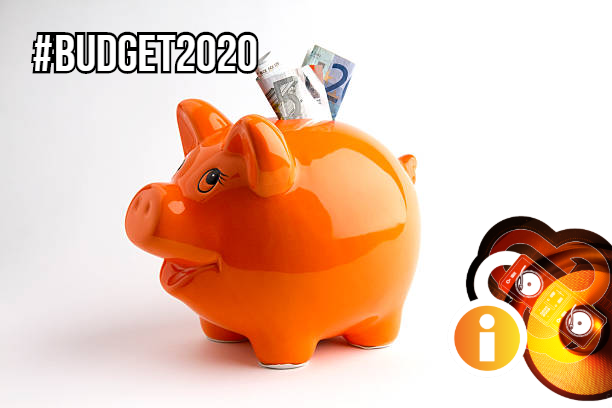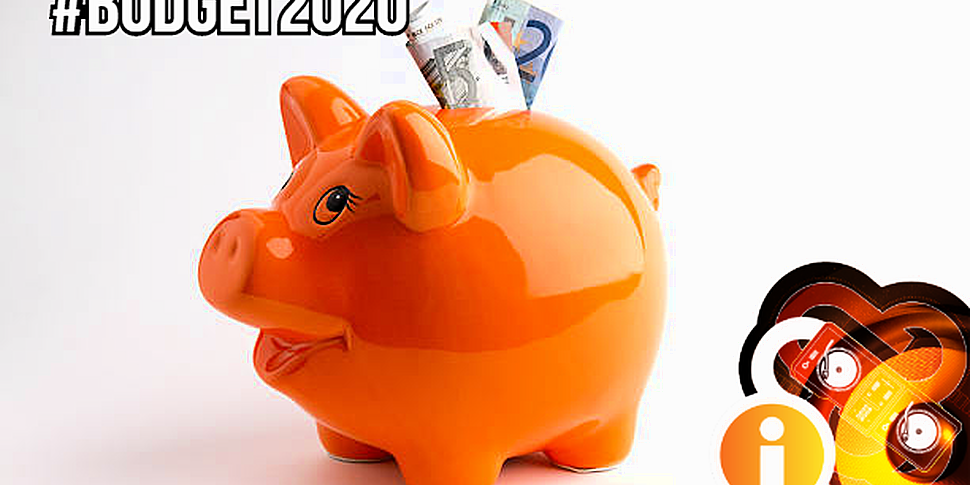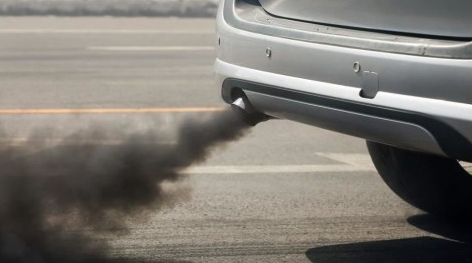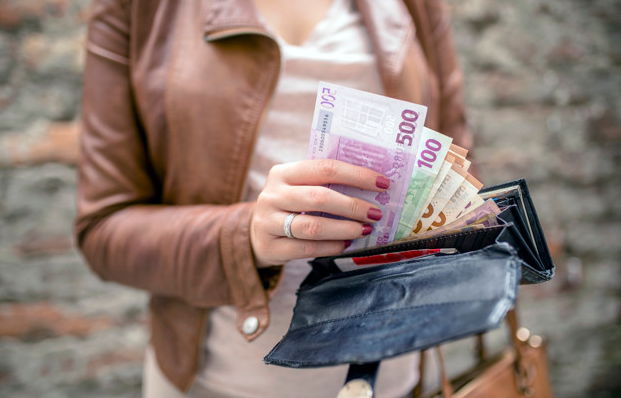
The good, the bad, the ugly and the tax.
Paschal Donohoe has announced the details of his 'brexit' budget for 2020 today.
The Finance Minister said his budget was ''without precedent'' and heavily influenced by the increasing risk of a no-deal brexit and action on climate change.
Over €1.2bn funding package announced to deal with Brexit #Budget2020 pic.twitter.com/jj1yExEqwk
— Deloitte Ireland (@DeloitteIreland) October 8, 2019
Here are the main points you need to know:
- Carbon tax to rise by €6, from €20 per tonne to €26, with polluted-linked charges for new petrol and diesel cars.
- The threshold for medical card income for people over the age of 70 will increase by €50 for one person or €150 for a couple.
- Prescription charges for over-70s cut by 50c, to €1.
- Free dental care for under sixes and free GP care for under eights.
- Cap on a family’s monthly drugs payment scheme reduced by €10, to €114.
- €1.1bn will support the building of 11,000 social houses in 2020, and a further 12,000 will be built in 2021.
- The help-to-buy scheme will be extended until 2021.
- €1.2bn war chest to cope with a no-deal Brexit.
- The price of a packet of 20 cigarettes is to go up by 50c from midnight.
And here's a more in depth look:
Brexit -
A package of more than €1.2bn, excluding EU funding, for Ireland to respond to a no-deal Brexit.
€200m of this expenditure for next year will be used to increase staffing across government departments and upgrade ports and airports.
A fund of €650m will go to support the agriculture, enterprise, and tourism sectors in the case of no-deal. €220m will be deployed immediately.
There will be a €110 fund for businesses, including: a €45m transition fund and €42m rescue and restructuring fund.
Climate action plan -
Petrol and diesel will cost about a euro more after midnight, around 2c is expected to be added to every litre of fuel.
Coal, briquettes and home heating oil will also be more expensive, but only from May 2020.
The carbon tax will be raised by €6, as part of a plan to raise the price of carbon from €20 per tonne at present, to €80 per tonne by 2030.
Carbon tax funding used for package targeted at Midlands/Bord na Mona, which will support 400 environmentally sustainable jobs.
Benefit in Kind to have environmental rationale for commercial vehicles from 2023
An extension of the benefit in kind (BIK) zero rate on electric cars to 2022 has been announced.
As well as an extension on VRT relief on hybrids to 2020.
Along with a diesel rebate scheme for hauliers to compensate for fuel cost increases.
Cigarettes -
The cost of a pack of cigarettes will rise by 50 cents, the average pack of cigarettes will now cost €13.50.
Healthcare -
There'll be more money for childcare with 56,000 medical cards for over 70s, free GP care for under 8s and free dental for under 6s.
Some of those will be delayed until late next year though.
€20m added to slaintecare fund with 1,000 therapists, nurses and other healthcare workers to be recruited.
Increase in Home Carer Credit of 100 euro to bring it to 1600 euro
Families and social welfare -
One Parent Family Payment going up by €15 and €10 for working family payment.
Living Alone allowance to increase by €5.
€3 increase to Qualified Child Payment for over 12s, €2 for under 12s.
100% Christmas bonus for all social welfare receipients retained.
€13 million for the warmer homes scheme.
Income tax -
Value of self-employed tax credit to be increased by €150.
There's no cuts to income tax: "Ireland has a competitive corporation tax rate. It has served us well and it will not be changing." - Minister Donohue.
Social welfare Christmas Bonus fully restored to 100 per cent.
Budget day, busy day. #Budget2020 amounts to €70bn of spending to:
1️⃣ Protect Ireland from the worst of a No Deal Brexit
2️⃣ Protect the environment
3️⃣ Deliver balanced regional development
4️⃣ Make life a little easier for families— Leo Varadkar (@LeoVaradkar) October 8, 2019
Surplus -
A surplus of 0.2% is projected for this year. A no-deal Brexit, however, will see the surplus swing to a deficit of 0.6% for next year.
Rainy-day fund -
€1.5bn will be transferred into the 'Rainy day fund' from Ireland's Strategic Investment Fund.
Job growth -
Mr Donohoe said 19,000 new jobs are forecast to be created next year, although Brexit risks could reduce this number.
Farming -
Farm restructuring relief will be extended until 2022.
There'll be a reduced rate of USC for medical card holders until December 2020#Budget2020 pic.twitter.com/jbE3ImGzUO
— iRadio (@ThisisiRadio) October 8, 2019
Tourism and transport -
The tourism sector will get €40m extra for initiatives. Transport getting €2.7bn to include investment in rural transport networks -
Including €9M for sustainable mobility projects like greenways and urban cycling projects.
Overseas aid -
There will be a €21m increase in overseas aid, to €837m in 2020.
Housing -
The Government is allocating over €2.5 billion to the Housing Programme in 2020.
Including a €20m increase to homeless services.
11,000 social housing units will be delivered in 2020.
Increase to stamp on commercial properties by 1.5% to 7.5% from midnight tonight.
Education -
150 new teaching posts and €1.9 billion investment in special education.
400 teaching posts to support those with special educational needs and 1,000 SNAs.
Gardai -
Garda recruitment continues next year with up to 700 new Gardai together with more civilian staff to release Trained Gardai for frontline policing duties.
Defence -
€32 million extra for the Defence Forces.















